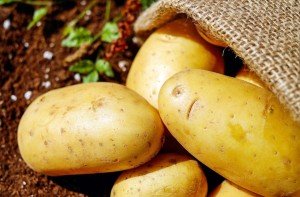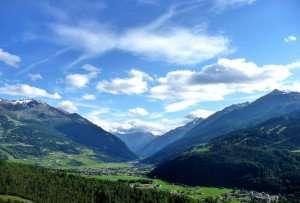Costa Rica's Favorite Meal: The Casado
February 7, 2025
Costa Rica is a fabulous destination for luxury travelers, as well as seniors, couples, and families, not least because of its many excellent dining options.…
Read This PostWhile pizzoccheri is largely considered a comfort food dish, it’s popular year round in the Valtellina Valley, which is nestled among the beautiful Alps mountains in Northern Italy. Don’t let the name of the dish fool you. This pasta dish has nothing to do with pizza. Rather, the origin of the word most likely refers to piz, which means piece, or pinzare, or “to press,” which may refer to the flat shape of the pasta.
 With the first recipe of pizzoccheri (pronounced peet-zoh-CHAY-ree) dating back to the 1700s and the village of Teglio, it truly is a local dish made with all local ingredients. For starters, the pasta is made from buckwheat that grows on the south-facing slopes of the Alps.
With the first recipe of pizzoccheri (pronounced peet-zoh-CHAY-ree) dating back to the 1700s and the village of Teglio, it truly is a local dish made with all local ingredients. For starters, the pasta is made from buckwheat that grows on the south-facing slopes of the Alps.
Cook in the Italian Valtellina Valley.
Since the buckwheat itself is soft, most recipes, such as the one below from one of our Lombardy cooking vacations, call for combining the buckwheat flour with semolina or wheat flour. Then, when the pasta is made by hand, as so many families in Lombardy do, this kind of tagliatelle pasta ends up looking like egg noodles, as they’re stocky in shape. While the pasta itself looks a bit grey in color due to the buckwheat, don’t let the color deter you, as it’s still delicious — especially when paired with pizzoccheri’s other hearty ingredients, including cabbage, potatoes, and butter. And, of course, don’t forget the local Casera cheese.
Explore Northern Italy’s Lakes region.
Serves 4
Prep time: 60 minutes
Cook time: 20 minutes
Cook method: Boil
 Ingredients
Ingredients
Instructions
1. In a bowl, mix the flours, add the water and knead until the dough is compact. Then wrap the dough in plastic wrap and let it rest for at least 30 minutes in a cool place.
2. Put the dough on a work surface and roll it out with a rolling pin. The dough should be rolled until it has a thickness of 2 to 3 mm (.2 to .3 cm). You should also make the dough into bands that are about 7 to 8 cm in width.
3. Overlap the alternating bands with a dusting of flour to make sure that they don’t stick to each other. Then cut along the length of the resulting wide noodles so that they’re about 5 millimeters.
4. Let the pasta rest on a floured surface sprinkled with flour.
5. Clean the cabbage in strips.
6. Peel and cut the potatoes into chunks.
7. Cook the potatoes and cabbage in a big pot of salted boiling water for about 5 minutes.
8. Add in the pizzoccheri pasta, and cook until potatoes are just cooked through and pasta is al dente, about 10 more minutes. Just remember that everything needs to finish cooking at more or less the same time.
9. Meanwhile, melt the butter in another, smaller, pan.
10. Add the garlic, then add the sage leaves.
11. Reduce the heat to low. Do not let the garlic burn!
12. When the pasta and vegetables are done, drain well and toss while still hot with the cheese in the dish you plan to serve the Pizzoccheri della Valtellina.
13. Pour the butter over the top and add a few gratings of pepper. Toss again to make sure everything is well incorporated.
14. Season to taste, and enjoy!
While pizzoccheri is, by far, the most popular dish of the Valtellina Valley, discover even more delectable regional dishes with a Lombardy cooking vacation.
By Liz Hall
 Learn more about the Lombardy region:
Learn more about the Lombardy region:
Sign up to receive our newsletter, which includes travel tips, recipes, promotions, and information on our best cooking vacations.
Find more photos, videos, food facts, and travel stories from The International Kitchen on Facebook, Instagram, Pinterest, Twitter, and YouTube.